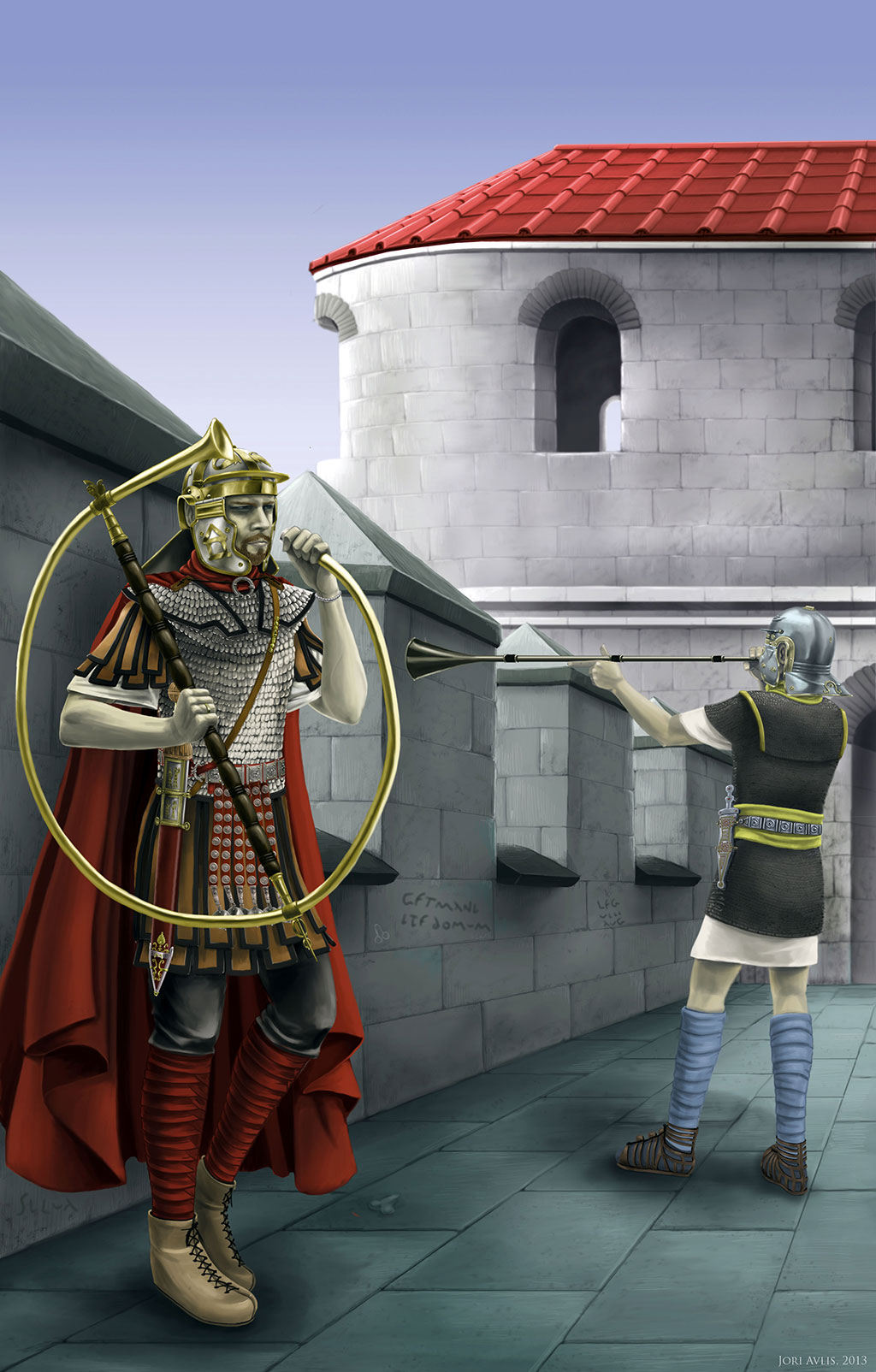- Contents
- Music?
- Cornu
- Tuba
- The painting
I finally finished my new picture, about the music instruments in the army of ancient Rome. Some days of hard work, some research and a lot of patience. But first, what’s this digital painting is about?
Music?
The first thing a roman legionary of the end of first century A.D. would listen in the morning, the sound of a cornicen, isn’t really “music” for our ears (and theirs). In fact, we have no idea of what kind of melody or not was used in the roman army. We only know that soldier’s lives were ruled by the sound of a wind instrument. It’s worth to note that percussion instruments didn’t exist in roman legions, as far as we know today. Unfortunately, we don’t have sheet music or other kind of annotation of military music of that time, so we can only guess our best. In reenactment, it’s not rare to listen to the Imperial March from Star Wars beeing played from a cornicen, just for the fun of it. Little is known about the instruments and their use.

On the left, a cornicen. On the right, the tubicen.
Cornu
The roman soldier on the left is a cornicen, a player of cornu. This instrument is the most listened in the fort, it’s also the most listened in battle. It completes the orders given by the centurion. In fact, it would be impossible for the 80 men of the centuria to listen to the single human voice of their leader. A similar instrument is the buccina, but we know even less about it than the cornu. The player of a cornu, juste one per centuria, is a respected “officer” of the legion.
Tuba
The tubicen, the player of tuba, have a different role. He plays the beginning of a attack. He also plays the retreat. Tuba orders seemed to be more global. The sound of it is incredible and powerful, I remember with emotion the tubicen of our reenactment group playing it in a museum…
The painting
Done with Photoshop, as almost always, and now with a Cintiq 24 HD, wich is nice, I must admit. The two players are in the roman fort of Mirebeau-sur-Bèze, near Dijon, in France.
 In Aciem
In Aciem